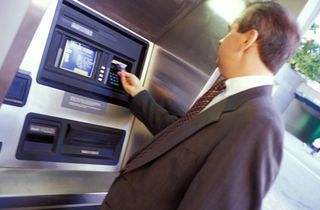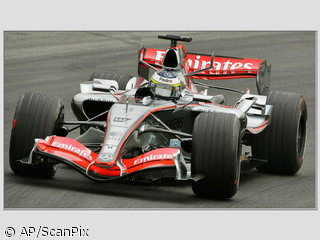The Australian government is planning to get tough on cyber crime.
Published:
20 May 2001 y., Sunday
Stepping in to replace laws that were originally drawn up in the 1980s, a bill to go before Parliament shortly will lift the maximum penalty for computer crime to at least ten years in jail.
Federal Justice Minister Chris Ellison said Monday that targets specifically include computer hacking and will establish new criminal offences for spreading viruses, cyber-stalking and electronic fraud.
Law enforcement authorities will be given extra powers to access people's computers when investigating cyber crimes. The proposed investigatory powers had been checked out with Australia's privacy commissioner, the Minister said.
Ellison earlier this year released a Model Criminal Code Report aimed at helping state and federal authorities deter and punish computer crime.
New offences recommended in the code paper specifically targeted denial-of-service attacks as an offence to be billed as "unauthorised impairment of electronic communication." Offenders could be jailed for up to ten years.
The report also included a new "sabotage" offence, covering all kinds of terrorist attacks, including those initiated by computers - maximum penalty, 25 years. It was not clear Monday whether this provision will be included in the new bill.
Other offences will include: the possession of or trading in programs and technology designed to hack into other people's computer systems, with a three-year penalty.
The proposed offences are said to be consistent with international developments such as last year's Council of Europe draft cyber crime convention.
The code paper is on the Web at: http://law.gov.au/publications/Model_Criminal_Code/index.htm .
Šaltinis:
Newsbytes.com
Copying, publishing, announcing any information from the News.lt portal without written permission of News.lt editorial office is prohibited.
The most popular articles
Software company announced new structure_ of it_s business.
more »
 The Self-Service and Kiosk Association has published its 2009 Self-Service Consumer Survey, a comprehensive report that reveals what consumers like and dislike about self-service technology — and what they want more of.
more »
The Self-Service and Kiosk Association has published its 2009 Self-Service Consumer Survey, a comprehensive report that reveals what consumers like and dislike about self-service technology — and what they want more of.
more »
 Private investors should hold up to 15 percent of their wealth in physical gold, according to a German asset-management company that plans to set up 500 "Gold-To-Go" ATMs in Germany, Switzerland and Austria sometime this year.
more »
Private investors should hold up to 15 percent of their wealth in physical gold, according to a German asset-management company that plans to set up 500 "Gold-To-Go" ATMs in Germany, Switzerland and Austria sometime this year.
more »
 ATM and debit card theft is expected to grow 10 percent to 14 percent this year, according to a survey of financial institutions that was released today.
more »
ATM and debit card theft is expected to grow 10 percent to 14 percent this year, according to a survey of financial institutions that was released today.
more »
 Built from potatoes, steered with carrots and powered by chocolate.
more »
Built from potatoes, steered with carrots and powered by chocolate.
more »
 Students at a Tokyo elementary school are waiting quietly for a "special lecturer" in science class. But when they see "Saya", a robot relief teacher, the kids are pleasantly surprised.
more »
Students at a Tokyo elementary school are waiting quietly for a "special lecturer" in science class. But when they see "Saya", a robot relief teacher, the kids are pleasantly surprised.
more »
 This week - the New York Times announced a deal with e-commerce giant Amazon timed to the release of its latest Kindle e-book device.
more »
This week - the New York Times announced a deal with e-commerce giant Amazon timed to the release of its latest Kindle e-book device.
more »
 Wincor Nixdorf AG and NICE Banking, an independent ATM deployer in South Korea, have partnered to grow a network of ATMs at sites owned by the country's top communications provider, Korea Telecom.
more »
Wincor Nixdorf AG and NICE Banking, an independent ATM deployer in South Korea, have partnered to grow a network of ATMs at sites owned by the country's top communications provider, Korea Telecom.
more »
 “The telecoms package has never been about anything to do with restrictions on the internet,” Malcolm Harbour told us ahead of Parliament's debate Tuesday on the telecoms package, which aims to reform the existing European electronic communications framework.
more »
“The telecoms package has never been about anything to do with restrictions on the internet,” Malcolm Harbour told us ahead of Parliament's debate Tuesday on the telecoms package, which aims to reform the existing European electronic communications framework.
more »
 On 20 April 2009 the Prague Congress Centre will host a ministerial conference Safer Internet for Children, which is organised by the Ministry of the Interior in cooperation with the European Commission.
more »
On 20 April 2009 the Prague Congress Centre will host a ministerial conference Safer Internet for Children, which is organised by the Ministry of the Interior in cooperation with the European Commission.
more »
 Payment card breaches in 2008 led to the most compromises and security breaches of record in the last four years, according to a new report from Verizon Business.
more »
Payment card breaches in 2008 led to the most compromises and security breaches of record in the last four years, according to a new report from Verizon Business.
more »